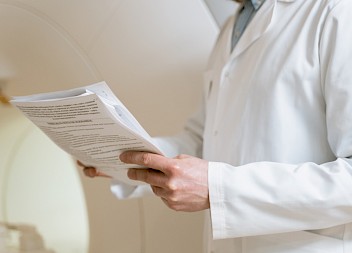As a result, she had to have a radical hysterectomy and pelvic lymph node dissection, which could have been avoided. She continued to experience pain and her ability to work and undertake daily tasks was greatly reduced.
£484,000 to a 37-year-old Woman After an NHS Trust Delayed in Diagnosing Cervical Cancer
In 2002 and 2006, the claimant (“C”) had cervical smear tests, both reported as negative. In 2010 a cervical smear suggested low grade cervical glandular intra-epithelial neoplasia (CGIN). A direct referral was made to a colposcopy clinic for an urgent colposcopy, during which biopsies were taken. The biopsies were reported to show high grade CGIN with worrying features suggestive of invasion. A large loop excision was performed under local anaesthesia, after which C was diagnosed with cervical cancer. This lead to surgery, a radical hysterectomy and pelvic lymph node dissection.
C’s claim was that the 2002 and 2006 smears were negligently interpreted and reported. The Hospital Trust admitted liability.
C already had two children but was now infertile. She continued to suffer with pain in the abdomen, pelvis, perineum and legs. She had to take a lot of pain medication and had had to modify her diet. She suffered from irritable bowel syndrome, depression and low mood and needed psychotherapy.
In terms of work, the could not work as much as before and was also limited in looking after house and home and her family. She could not manage all domestic chores or as much social activity. Before the hysterectomy, she had been working two to three days a week as a self-employed dental hygienist and had hoped to return to full-time hours and train as a dental therapist once both her daughters had started school. Following the hysterectomy, however, she had only been able to work for a day-and-a-half each week, resting and avoiding strenuous activity on the other five days of the week. Her pain prevented her from increasing her hours.
C's pain was likely to continue. In terms of the cancer, her prognosis was excellent as prospects of five-year survival were 96.8 per cent.
The Hospital admitted liability in full. It accepted that the results of the smear test in 2006 should have been referred to a cytopathologist for review and urgent referral for colposcopy should have been recommended. It was also accepted that colposcopy would have revealed abnormal cells and a biopsy would have been performed. Earlier diagnosis was likely to have resulted in treatment of pre-invasive high grade CGIN with loop excision. Surgery, including hysterectomy and laparoscopic removal of the lymph nodes would have been avoided and C’s fertility would have been preserved.
The medical experts' view was that the pain in C's abdomen, pelvis, perineum and legs was due to nerve pain caused by a combination of the injury to and ischaemia of her pelvic nerves and the nerves running in to the top of her legs. That was probably caused by post-operative adhesions or direct trauma during surgery and dysmotility of the bowel caused by the adhesions.
Out of the compensation, a figure of £80,700 is estimated now for the value of C’s pain, suffering and injury with the balance pf the award for past financial losses and anticipated future financial losses (including £230K future loss of earnings).



